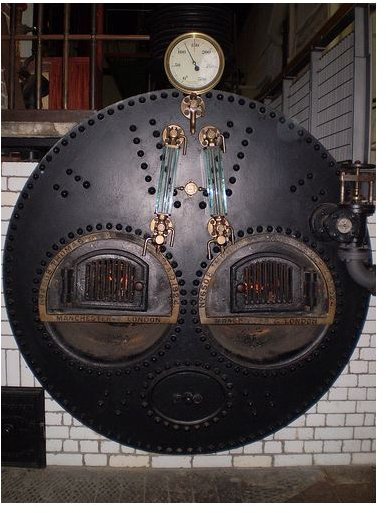Boiler Water Treatment
Introduction
The quality of water used for a marine boiler depends on the type of the boiler and also its capacity. All the modern marine boilers having high steam capacity, along with high temperature and pressure, require the purest form of water whereas a medium size boiler will not require extremely high water purity level.
No matter how pure the boiler water is, it tends to contain some kind of dissolved salts and impurities in it even after boiler water treatment. These dissolved salts separate from the water when the boiler water is heated and stick to the heating surfaces of the boiler resulting into scale formation. The main disadvantage of these deposited scales is that they reduce the heat transfer property of the boiler drastically, which leads to overheating, failure of tubes and loss of efficiency.
While few salts come out of the solution, there are others that remain in the water to produce acids that affect the internal metal surfaces. As the acidity of the water increases because of more dissolving of salts, the operating stresses on the boiler increases which results in a detrimental condition known as “Caustic Cracking”. Caustic Cracking also means the cracking of the metal of the boiler which leads to metal failure in the long run.
Apart from this, there are dissolved gases such as carbon dioxide and oxygen, which sticks to the boiler surface, leading to excessive corrosion of the boiler and feed system. There are also suspended impurities in the boiler water which results into foaming after mixing with excess salts. The foam floats at the top of the water and leads to carryover of water with the steam leaving the boiler drum. This phenomenon is known as priming and is considered a prominent reason for many boiler damages.
Image Credits : Lancashire Boiler by Elsie esq. at Creative Commons/Flickr (https://www.flickr.com/photos/elsie/3073841683/sizes/m/in/photostream/)
Most Common Impurities
Out of the several impurities found in boiler water, different types of metal salts form a substantial part. Metal salts such as chlorides, magnesium, sulphur, and calcium bicarbonates are mainly found in boiler water. All these salts combine to form what is known as the “hardness” of water. Calcium and magnesium are the major contributors for water hardness.
Temporary hardness, caused by the scale forming carbonates, is the result of decomposition of bicarbonates of calcium and magnesium. Permanent hardness is caused by chlorides, sulphates and nitrates, which are not decomposed by boiling. Both, temporary and permanent hardness together are known as total hardness, which is used to measure the amount of scale forming salts in the boiler water. Thorough boiler water treatment is therefore necessary before starting the water.
Boiler Water treatment
Boiler feed water is treated with chemicals in order to achieve the following:
- To keep a check on water hardness to prevent scale formation.
- To prevent any dissolved salts or impurities to stick to the boiler surface.
- To prevent foaming and water carry over.
- To remove dissolved gases and thus prevent corrosion.
The chemical treatment of the boiler water is carried out with the help of water test kits that are available with step-by-step procedure manuals.
References
Introduction of Marine Engineering 2nd Edition by D.A Taylor
